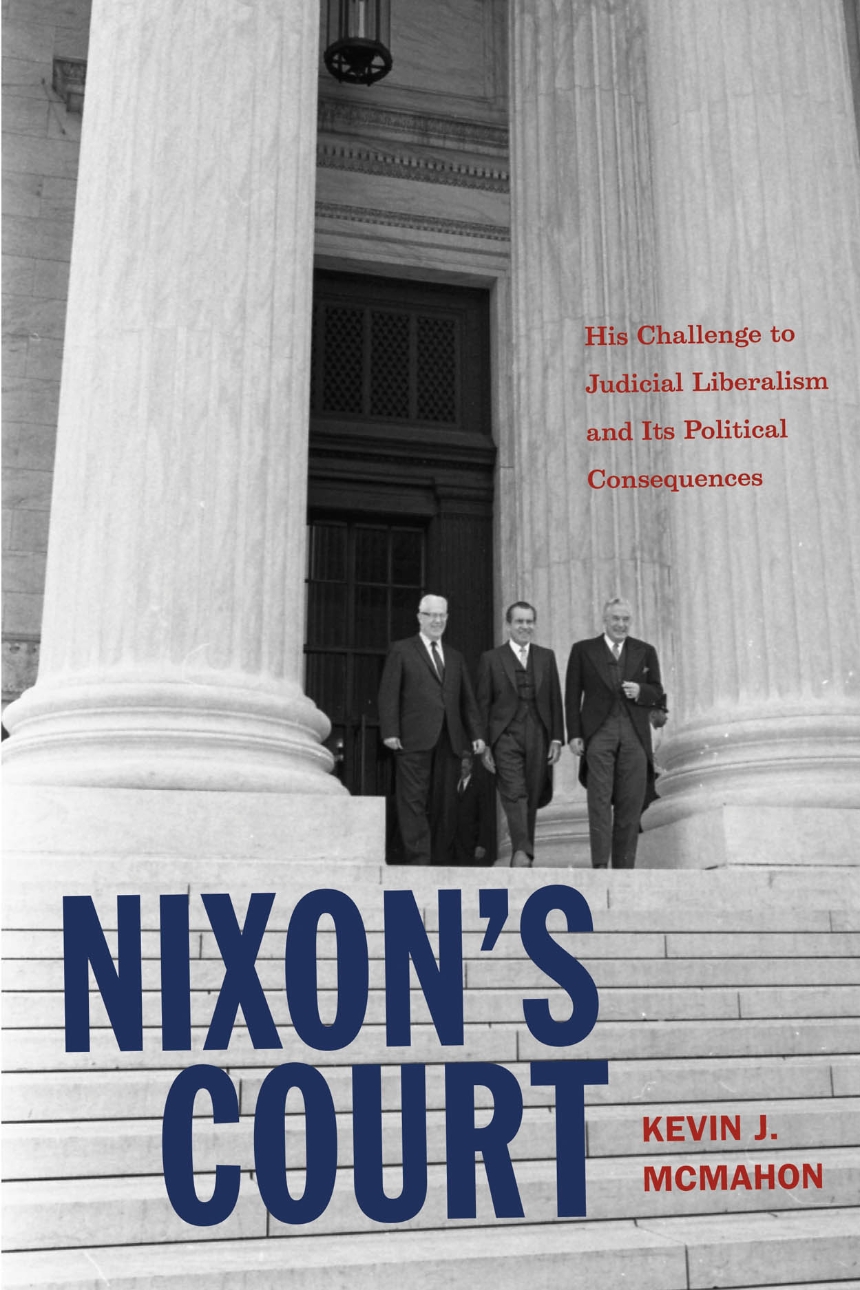Nixon’s Court
His Challenge to Judicial Liberalism and Its Political Consequences
Nixon’s Court
His Challenge to Judicial Liberalism and Its Political Consequences
Most analysts have deemed Richard Nixon’s challenge to the judicial liberalism of the Warren Supreme Court a failure—“a counterrevolution that wasn’t.” Nixon’s Court offers an alternative assessment. Kevin J. McMahon reveals a Nixon whose public rhetoric was more conservative than his administration’s actions and whose policy towards the Court was more subtle than previously recognized. Viewing Nixon’s judicial strategy as part political and part legal, McMahon argues that Nixon succeeded substantially on both counts.
Many of the issues dear to social conservatives, such as abortion and school prayer, were not nearly as important to Nixon. Consequently, his nominations for the Supreme Court were chosen primarily to advance his “law and order” and school desegregation agendas—agendas the Court eventually endorsed. But there were also political motivations to Nixon’s approach: he wanted his judicial policy to be conservative enough to attract white southerners and northern white ethnics disgruntled with the Democratic party but not so conservative as to drive away moderates in his own party. In essence, then, he used his criticisms of the Court to speak to members of his “Silent Majority” in hopes of disrupting the long-dominant New Deal Democratic coalition.
For McMahon, Nixon’s judicial strategy succeeded not only in shaping the course of constitutional law in the areas he most desired but also in laying the foundation of an electoral alliance that would dominate presidential politics for a generation.
360 pages | 9 line drawings, 18 tables | 6 x 9 | © 2011
History: American History
Law and Legal Studies: Legal History
Political Science: Judicial Politics
Reviews
Table of Contents
Acknowledgments
Chapter 1 Nixon’s Victory: Oppositional Presidents and the Cycles of Supreme Court Politics
Part I Circa 1968: Law, Order, and the Race for the White House
Chapter 2 The Fight for the Nomination: Holding On for a Second Chance
Chapter 3 Running to Be “the One”: Nixon, Divided Democrats, and a Chastened Court
Part II The Politics of Desegregation
Chapter 4 “Instead of Listening to What We Say . . . Watch What We Do”: Electoral Strategies, Practical Politics, and Nixon’s Judicial Policy
Chapter 5 Leading by Following: Nixon, the Court, and the Road to School Desegregation
Part III The Dynamics and Difficulties of Remaking the Court
Chapter 6 The Party of Lincoln’s Last Stand? The GOP Divide and the Rejection of Nixon’s Southern Strict Constructionists (or, How Senate Republicans Made the Court More Liberal)
Chapter 7 Fifty-Three Seconds That Shaped the Court: Nixon’s Acceptable Southerner and Accidental Ideologue (or, How Liberals Made the Court More Conservative)
Part IV The Political and Electoral Consequences of Supreme Court Decisions
Chapter 8 Fighting Busing, Crime, Smut, and Social Disorder in America: Strong Rhetoric, Selective Action
Chapter 9 Judicial Decisions and the Ballot Box: Nixon’s Court and the Division of the Democratic Coalition
Chapter 10 Evaluating the Conservative Counterrevolution through the Nixon/Rehnquist Nexus
Appendix
Notes
Works Cited
Awards
Choice Magazine: CHOICE Outstanding Academic Title Awards
Won
Supreme Court Historical Society: Erwin N. Griswold Prize
Won
